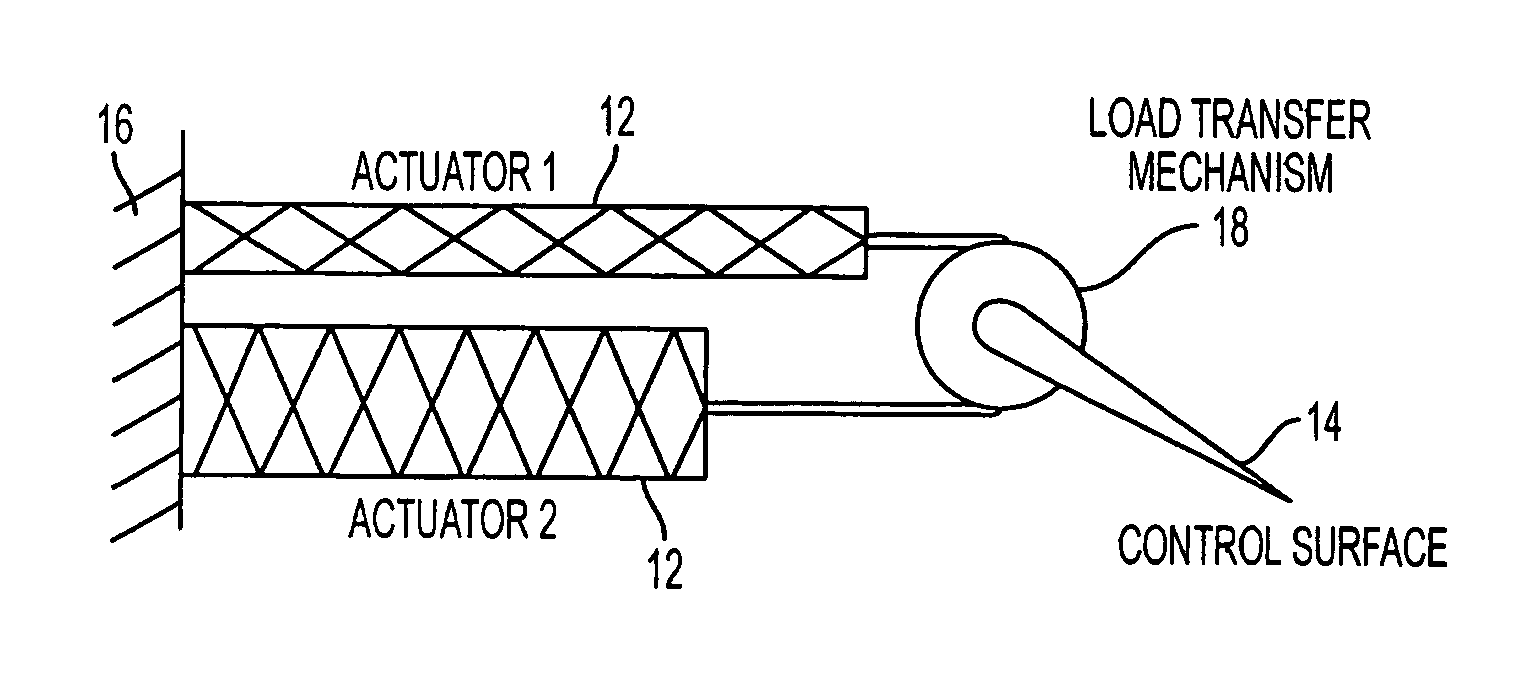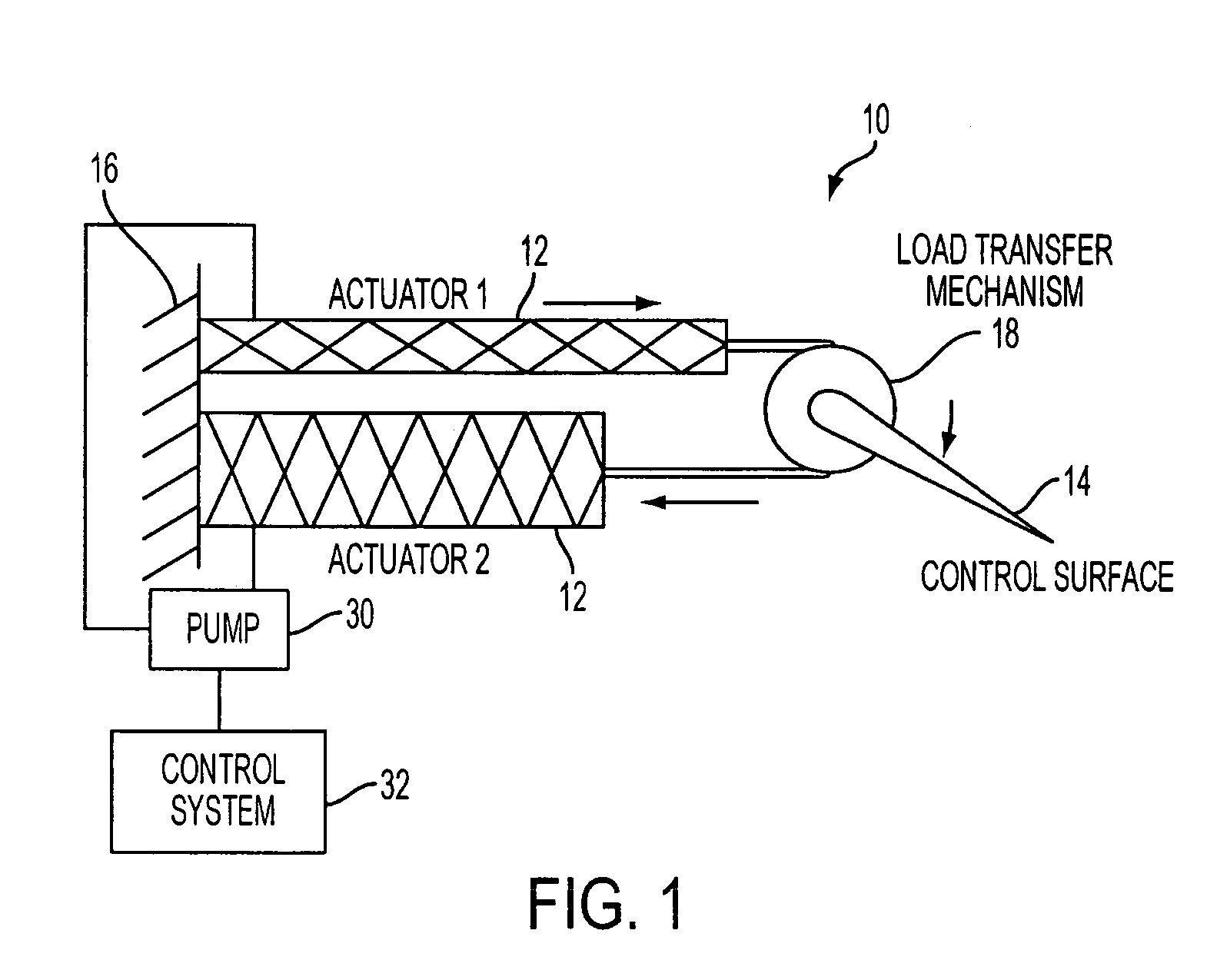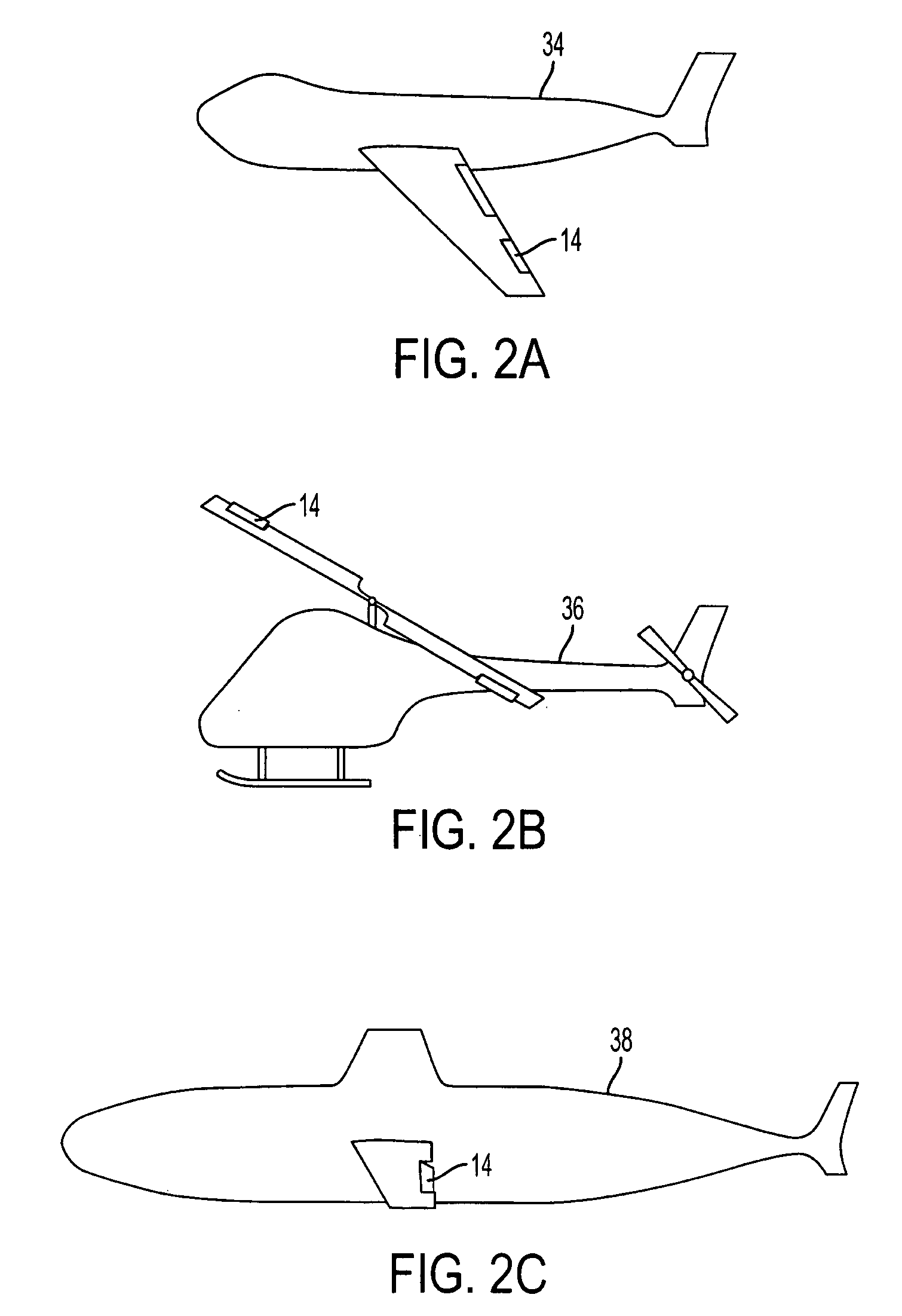Fluid-driven artificial muscles as mechanisms for controlled actuation
a technology of fluid-driven artificial muscles and actuators, which is applied in the direction of machines/engines, valve construction, transportation and packaging, etc., can solve the problems of limited maneuverability of fixed-wing aircraft, increased weight of actuator components, associated fluids, and piping, and the limitations of size, power and weight of actuators, etc., to achieve high adaptability and facilitate the interchange between large force and large stroke operation.
- Summary
- Abstract
- Description
- Claims
- Application Information
AI Technical Summary
Benefits of technology
Problems solved by technology
Method used
Image
Examples
Embodiment Construction
[0030]The actuation system 10 of the present invention utilizes one or more fluid-driven artificial muscles (“FAMs”) 12 to manipulate fluid control surfaces 14 for improved characteristics and stability of a vehicle 16 moving through the fluid. When a vehicle 16 requires performance characteristics that are outside its standard limits of design, the fluid control surfaces 14 may be incorporated to extend the operational envelope of the vehicle 16.
[0031]The system 10 of the invention has a high degree of adaptability. This is due, in part, to the inherent flexibility of the FAM 12. A FAM 12 is typically composed of an elastomeric bladder 20 surrounded by braided mesh 22 with a first end fitting 24, which is open for pressurized fluid exchange, and a closed end fitting 26. By varying the internal pressure within the FAM 12, the FAM 12 expands radially while contracting axially. This enables the FAM 12 to serve as a dual-role actuator, switching between a high-force, low-stroke device ...
PUM
 Login to View More
Login to View More Abstract
Description
Claims
Application Information
 Login to View More
Login to View More - R&D
- Intellectual Property
- Life Sciences
- Materials
- Tech Scout
- Unparalleled Data Quality
- Higher Quality Content
- 60% Fewer Hallucinations
Browse by: Latest US Patents, China's latest patents, Technical Efficacy Thesaurus, Application Domain, Technology Topic, Popular Technical Reports.
© 2025 PatSnap. All rights reserved.Legal|Privacy policy|Modern Slavery Act Transparency Statement|Sitemap|About US| Contact US: help@patsnap.com



